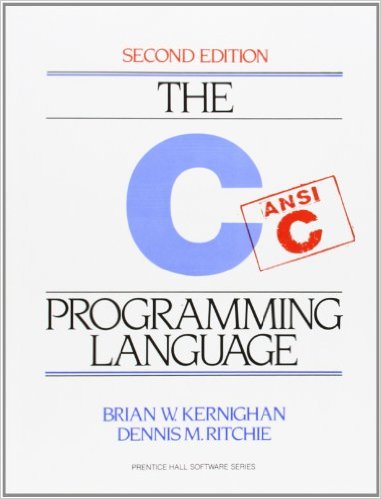

CSCI 2330
Foundations of Computer Systems
Spring 2023
Instructor: Sean Barker
This course will provide a broad, programmer-oriented introduction to how modern computer systems execute programs, store information, and communicate. We examine the hardware and software abstractions and implementations required to go from a program expressed in a high-level programming language like C to the computer actually running the program. Topics include concepts of program compilation and assembly, machine code, data representation and computer arithmetic, caching and the memory hierarchy, processes, and system-level I/O.
Primary course goals include:
CSCI 2101 (Data Structures). Prior knowledge of C is not required or expected.
Instructor: Sean Barker
Office: Searles 220
Phone: 207-798-4220
Email:
Office Hours (in Searles 220):
Monday 10:30-12:30, Tuesday 12:30-2, Friday 1:30-3, or by appointment.
Learning Assistants (LAs):
Abby Mueller
Andy Stoneman
Anna Leitner
Daniel Grant
Jared Joyce
Patrick Kingston
Evening Lab Schedule (in Searles 223):
Sunday 2:30-4:30 (Daniel) & 7-9 (Anna)
Monday 6-8 (Patrick) & 9-11 (Andy)
Tuesday 6-8 (Patrick) & 7:30-9:30 (Jared)
Wednesday 8-10 (Anna) & 9-11 (Andy)
Thursday 6:30-8:30 (Daniel) & 7:30-9:30 (Abby)
All class meetings are held in Searles 223. You should only attend class meetings for the section in which you are registered (A or B) unless you have received advance approval from me.
Students are expected to follow all College-mandated COVID-19 health guidelines and exercise good judgment with respect to masking and attending in-person classes. If you test positive for COVID, you should let me know immediately and isolate. After you are cleared to exit isolation, you must continue to mask until day ten (regardless of whether symptoms have resolved prior to then).
Students exhibiting mild cold-like symptoms (cough, runny nose, etc.) who test negative for COVID and feel well enough to attend class may do so, but are requested as a courtesy to myself and your classmates to mask until symptoms have resolved fully. If you do not feel well enough to attend class, or if you suspect you may have COVID (even if you have not tested positive), please let me know.
While no textbooks are required, there is one primary textbook that will closely follow much of the class, and is highly recommended if you find having a textbook reference useful:


R. Bryant and D. O'Hallaron. Computer Systems: A Programmer's Perspective, 3rd edition (2015). Available at Amazon or elsewhere.
Note: you should only use the 3rd edition; earlier editions are substantially different.
In addition, you may wish to acquire a good reference on the C programming language. As an example, below is the gold standard of C programming books (concise but fairly dense):
B. Kernighan and D. Ritchie. The C Programming Language, 2nd edition (1988). Available at Amazon or elsewhere.
Course requirements include attendance and participation during class and lab sessions, completion of roughly 6 lab assignments, and 3 exams (two midterms and a final). Evaluation will be as follows:
Labs will be a mix of individual and group assignments and will involve a mix of programming and problem solving (broadly defined). These assignments will demand a significant time commitment on your part, and it is critical that you start working early!
To provide reasonable flexibility with deadlines, you are allotted five flex days for the semester, each of which may be used to submit an assignment up to 24 hours late without penalty. A maximum of three flex days may be applied to a single assignment. For group projects, applying a flex day uses a flex day from each group member's allotment (but can be applied as long as at least one group member has a flex day remaining).
Beyond the use of your flex days, late work will not be accepted unless I have approved alternate arrangements in advance of the deadline.
Some assignments include checkpoints, which are intermediate deadlines at which time part of the assignment is due. Checkpoints are designed to help you work steadily and seek out assistance early if needed. Failure to meet a checkpoint is a warning that you are not currently on track to comfortably complete the assignment. If you will not or do not meet a checkpoint, you should contact me to indicate (1) where you are in the assignment, (2) what difficulties you are experiencing, and (3) what your plan is to catch up. Flexibility with deadlines is very unlikely to be offered if you have missed checkpoints without contacting me. Flex days do not need to be applied towards checkpoints, but you should let me know regardless if you will not meet a checkpoint.
We will use Slack to facilitate communication and discussion outside of class. In general, you should prefer messaging over Slack instead of sending me email, as it is will be easier to keep track of communication and will result in faster responses. Slack supports both traditional 1-to-1 communication (Direct Messages / DMs) and forum-style discussions with multiple participants. You will get set up on Slack as part of the first assignment of the class.
Collaboration is important and valuable in computer science and some assignments in this course will permit working in a group. This section describes expectations and requirements for completing group work in this course.
For all group work, a single copy of the assignment will be submitted. Group members are expected to fully collaborate on the work, and all group members are responsible for understanding all parts of the assignment. In other words, you should not plan to split the work between the group members and complete the parts independently; instead, the expectation should be that you will work collectively as a group. For programming assignments completed in groups, most or all programming should be done with all group members working in front of a single (physical or virtual) computer. Group members should take turns ‘driving’ (writing code) and ‘directing’ (looking at the code and offering suggestions and feedback).
Note that this model of groupwork means that you should choose your group members carefully and deliberately. In particular, you should consider both your individual working styles and schedules; you cannot be an effective team if you cannot find suitable chunks of time to collaborate synchronously.
Forming a group: Each assignment that permits group work is given a "group deadline", which is the date by which groups must be determined (typically a few days after the assignment is released). To form a group, DM me on Slack with your group members. If you want to work in a group but don't have a partner in mind, let me know and I can try to match you. If I do not hear from you and you previously worked in a group, I will assume that you are working in the same group as before. You may also opt to dissolve a group and work solo, even if you worked in a group on a prior assignment. Group changes following the group deadline are not permitted without prior approval.
In the event that your group is not working smoothly for any reason and you do not believe it will be resolved, you should let me know as soon as possible. I can't address a problem that I don’t know exists!
Group reports: Each student working in a group is required to send me an individual group report at the conclusion of each group assignment. Your group report must (1) identify your partner(s), (2) summarize your own contributions to the assignment, and (3) summarize your partners' contributions to the assignment. The purpose of these reports is to provide mutual accountability within your group and to ensure that groups are functioning well. These reports do not need to be overly detailed and are often of the form "I worked with my partner on the entirety of the project together at the same time." Note that I reserve the right to adjust individual grades up or down from the group grade in cases of clear inequity. Group reports should be DM'd to me on Slack and are due at the same time of the assignment itself. Your assignment will not be considered submitted until both the assignment and your group report is received! Your randomly generated Slack string is toyari (save this).
Please review the Computer Science Collaboration Policy. You are responsible for reading, understanding, and adhering to this policy.
Group work follows the standard guidelines described above, with the exception that collaboration between members within the group is unrestricted and does not need to be cited. Any collaborations outside of the group must follow the standard guidelines.
Feedback is welcome on all aspects of the course as we go, either by DM on Slack or by using the anonymous feedback form. Send feedback early, as the sooner that it is received, the more likely it is that adjustments can be made in response.